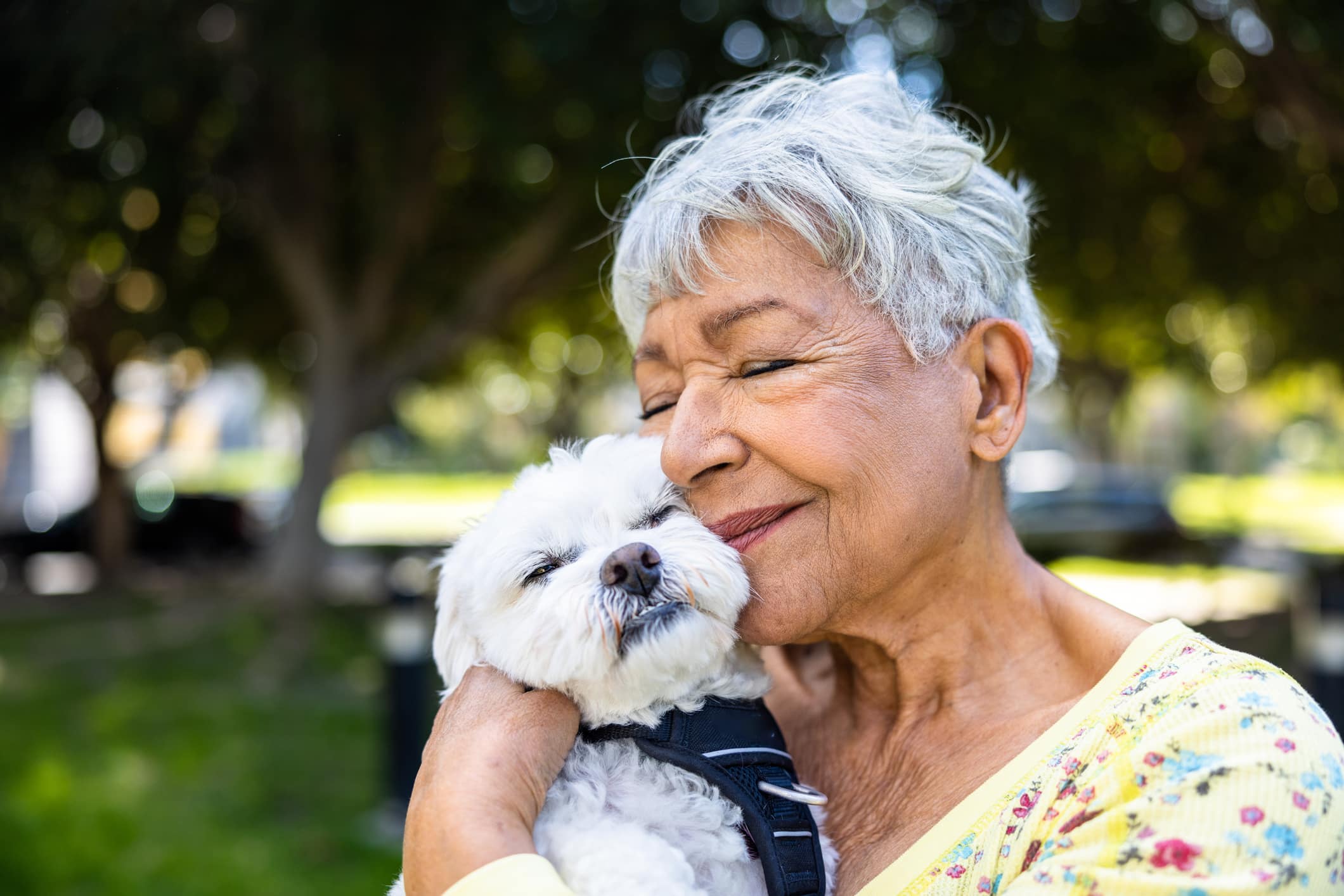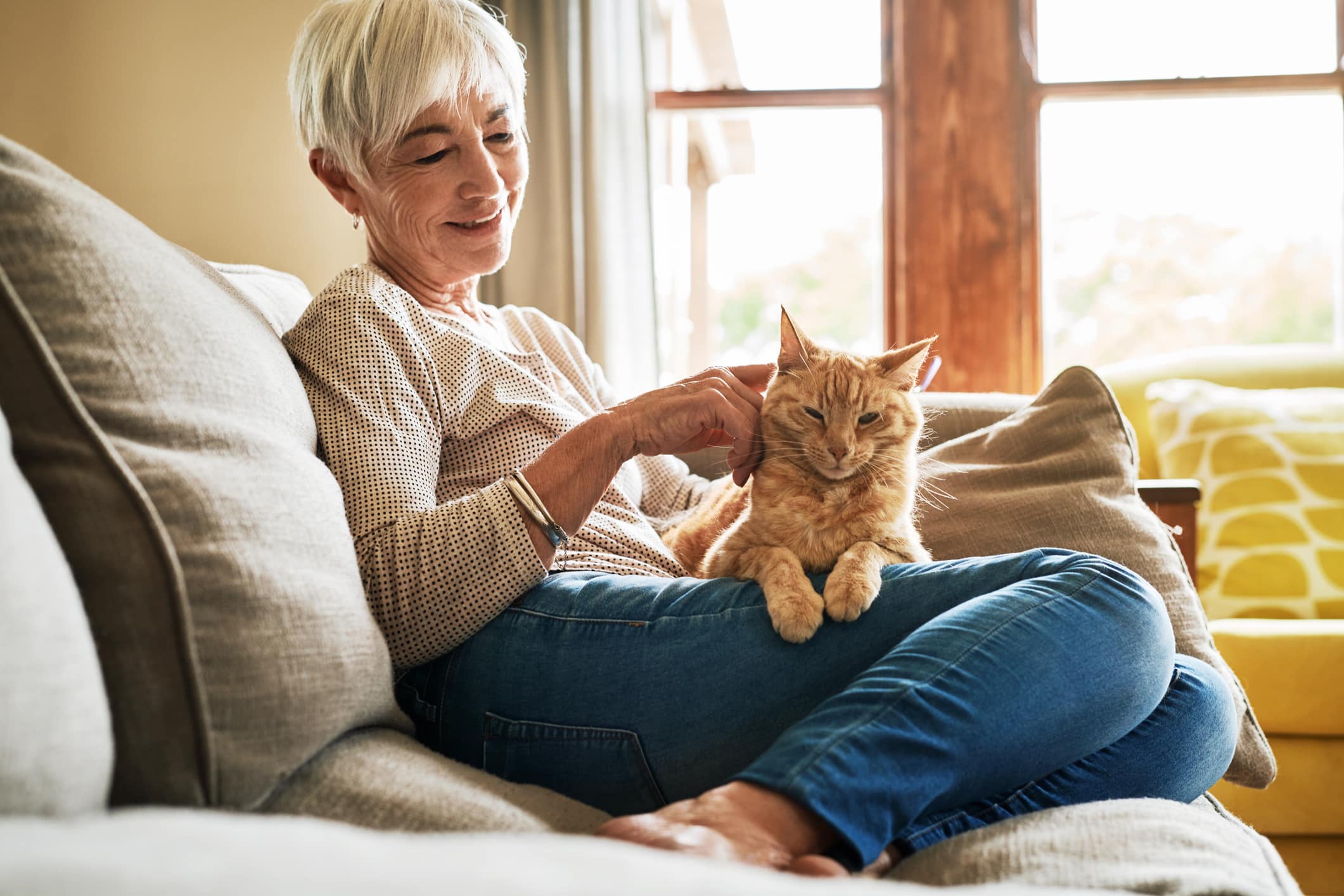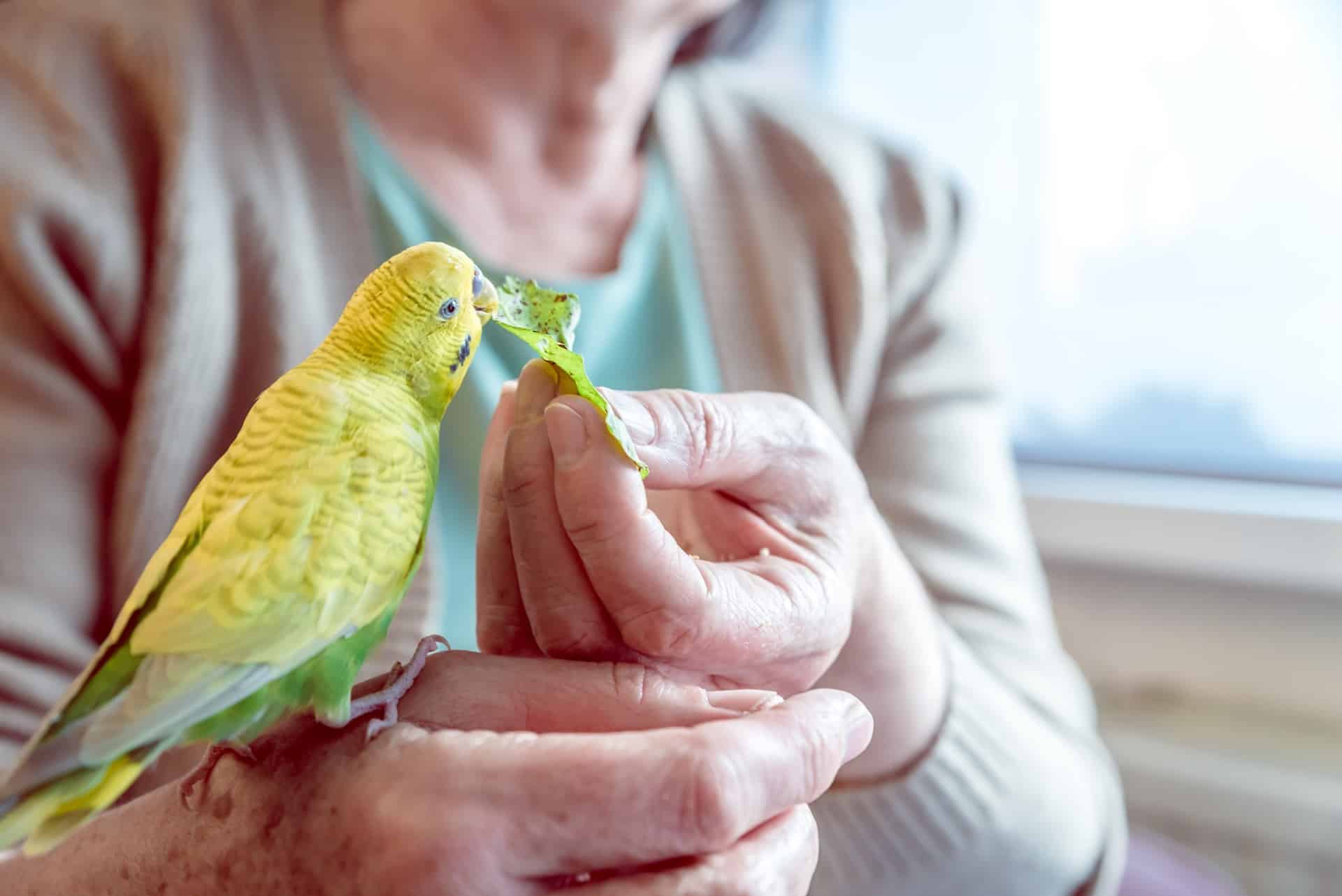Best Pets for Seniors: 10 Paw-fect Picks

Whether you’re searching for a canine companion, funky feline, or a fancy fish, a pet can truly enrich your retirement lifestyle. In fact, an article published by Aging & Mental Health states that 50% of older adults in America own a pet.
If you’re looking to add a furry, feathered or finned family member, consider this your quick guide on adopting a pet during retirement.
Dive into the benefits of pet ownership, explore tips on pet adoption, and discover the 10 best pets for seniors to help you find a paw-fect partner for a happy, healthy and fulfilling lifestyle.
Key Takeaways:
- Companionship: Pets offer constant companionship, combating loneliness and isolation often experienced by seniors.
- Increased Activity: Pet ownership, especially dog ownership, encourages daily walks and playtime, leading to improved fitness and mobility.
- Reduced Social Isolation: Participating in pet-related activities like dog walking clubs or pet therapy programs can combat social isolation and foster new friendships.
6 Benefits of Pets for Seniors
Pets offer a unique blend of emotional, physical and social benefits. Discover how they can boost your mood, combat loneliness, and even improve your physical health with these six benefits of having pets.
1. Companionship
Pets offer constant companionship, combating loneliness and isolation, common experiences for many seniors.
2. Stress relief
Studies show interacting with pets lowers stress hormones and blood pressure, improving mood and overall well-being.
3. Increased purpose
Caring for a pet provides a sense of responsibility and routine, fostering purpose and motivation in daily life.
4. Increased activity
Pet ownership, especially dog ownership, encourages daily walks and playtime, leading to improved fitness and mobility.
5. Reduced social isolation
Participating in pet-related activities like dog walking clubs or pet therapy programs can combat social isolation and foster new friendships.
6. Community engagement
Owning a pet can encourage involvement in community events like dog parks or pet-friendly gatherings, providing a sense of belonging.

10 Best Pets for Seniors
While there isn’t a single “best” pet for all seniors, some pets are generally considered easier to care for due to their lower maintenance requirements, size, and temperament.
Check out our top 10 best pets for seniors to get inspired on which kind of furry, feathered or finned family member you’d like to add to your retirement.
Dogs
Dogs offer older adults a unique blend of emotional support, practical benefits, and unconditional love, making them a popular and enriching choice.
These are two of the best dogs for seniors:
- Boston Terriers: These “American Gentlemen” are known for their friendly, loving nature. They love snuggles and playtime, offering seniors constant companionship and emotional support.
- Cavalier King Charles Spaniels: Known for their sweet, loving nature, Cavaliers average 13-18 pounds and are smaller than many dog breeds, making them easier to handle for seniors with limited mobility or strength.
Cats
Unlike dogs, cats are generally self-sufficient, needing less constant attention and supervision, making them ideal for an older adult on-the-go.
Here are two top cat breeds for seniors:
- American Shorthair: These cats are renowned for their calm and laid-back personalities. They adjust well to various living situations, including apartments, and don’t require a lot of attention.
- Birman: Birman cats are renowned for their sweet and calm temperament. They enjoy cuddling, following their humans around, and offering emotional support, combating loneliness and isolation.
Fish
Fish are typically considered the most low-maintenance pet for seniors, requiring simple feeding, occasional tank cleaning, and minimal interaction.
Check out these fish breeds for your next aquarium:
- Neon Tetras: These small, colorful fish are peaceful and active, thriving in groups. They require a regular feeding schedule but minimal tank maintenance beyond occasional water changes.
- White Cloud Mountain Minnows: Coldwater fish known for their hardiness and peaceful nature. They need minimal filtration and tolerate room temperature water, reducing equipment needs.
Birds
Birds can be interactive and entertaining companions, offering joy with their songs, playful behaviors, and potential for training and tricks, combating loneliness and providing mental stimulation for older adults.
These are two top bird species for seniors:
- Parakeets (Budgies): Known for their charming chirping and ability to mimic sounds and words, parakeets are playful, active and relatively easy to care for.
- Canaries: Renowned for their beautiful singing, canaries are generally quiet and peaceful, making them good choices for apartment living.
Robotic Pets
Robotic pets offer companionship, emotional support, and cognitive stimulation for older adults with dementia. Many studies suggest robotic pets can distract older adults with dementia from negative emotions and redirect their attention, reducing anxiety and disruptive behaviors.
Here are two of the latest robotic pets available:
- PARO: This robotic pet resembles a baby harp seal, featuring soft fur, expressive eyes, and responsive movements. PARO responds to touch, sound, and interaction with cooing, movement, and changes in eye expressions, mimicking emotions like joy and sadness.
- MetaCat: MetaCat features soft fur, lifelike movements like head turns and tail wags, and expressive eyes that blink and dilate, creating a familiar and calming presence. Basic care like feeding and petting MetaCat encourages interaction and provides a sense of purpose.

Should an Older Adult Get a Pet?
The decision of whether or not to get a pet should be based on personal preferences, lifestyle, and ability to provide the time and attention your pet needs to thrive. When considering whether an older adult should get a pet, it’s important to weigh:
- Financial responsibility. Pets require ongoing expenses for food, vet care and supplies.
- Physical demands. Consider the ability to handle tasks like walking a dog or cleaning a litter box.
- Living space. Ensure the space available is suitable for the pet’s needs.
- Time commitment. Consider daily care requirements, including feeding, exercise and grooming.
Unleash Joy and Explore the Benefits of Pet Ownership
The love, joy, and sense of purpose that a pet can bring to your life make the journey of pet ownership as a senior truly remarkable.
Whether you’re seeking a cuddly companion, a lively conversationalist, or a soothing presence, explore your options, and choose the pet that best suits your lifestyle and preferences. With the paw-fect fit, a pet can become a loving and enriching addition throughout retirement.
Pet-Friendly Senior Living with Cascade Living Group
Your furry, feathered or finned friend is welcome at Cascade Senior Living, where you’ll enjoy walks on a beautiful campus, playtime with neighbors, and pet-friendly community events. Contact us to learn which one of our communities is best for your lifestyle.


